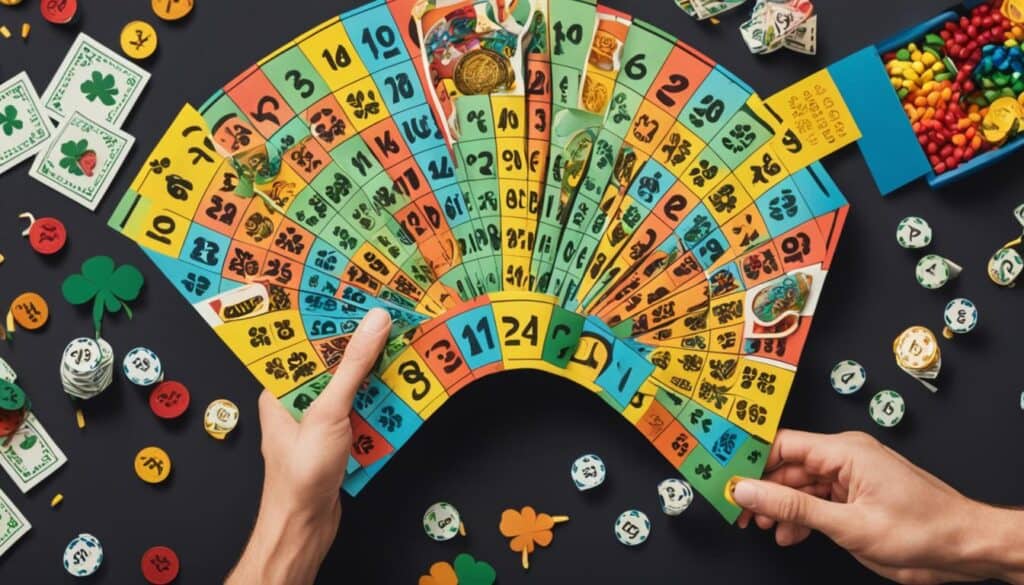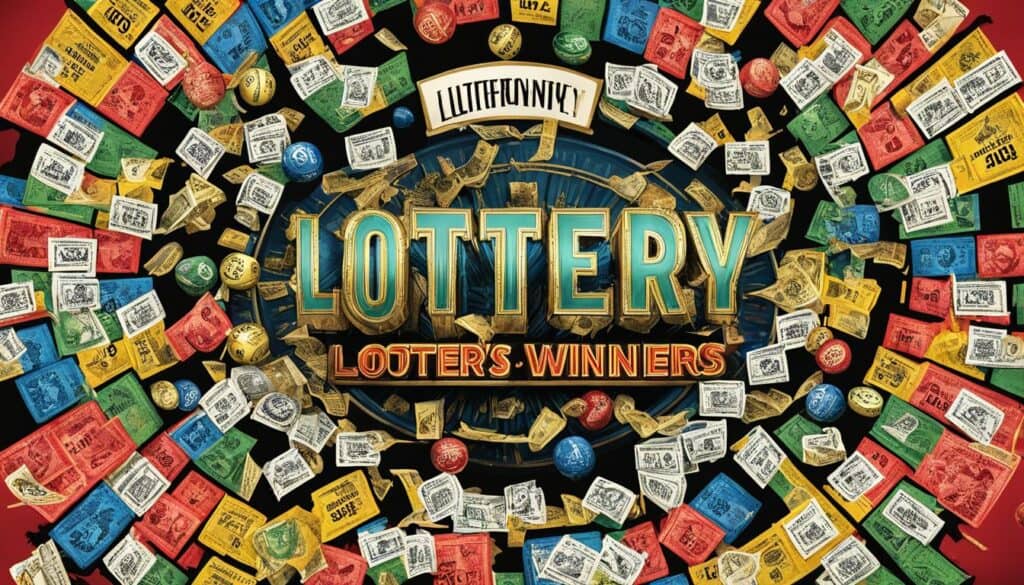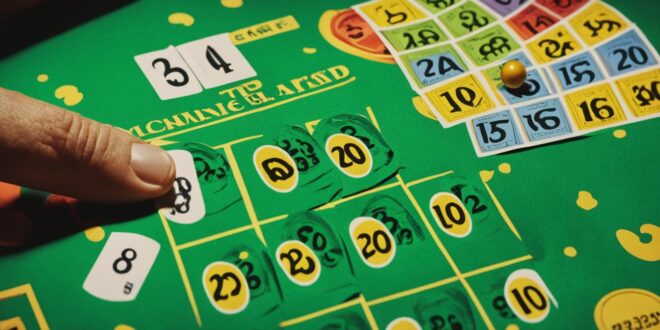What is the lottery? Lotteries have long been a popular form of entertainment and a chance for people to test their luck. Whether it’s a small local draw or a massive national jackpot, the allure of winning big has captivated individuals for centuries. In this article, we will delve into the basics of lotteries, how they work, and explore the different types of lottery games that exist.
At its core, a lottery is a game of chance where winners are determined by a random drawing. Participants purchase tickets and select a set of numbers, hoping that their chosen combination will match the winning numbers. Lotteries encompass a wide range of games, from simple number draws to intricate scratch-off tickets with various prize tiers.
The mechanics of a lottery involve generating random numbers to determine the winners. Traditionally, this has been done using machines that randomly select numbers, ensuring fairness and eliminating any potential bias. Over time, lotteries have evolved to incorporate online platforms, making it even more accessible for players to participate.
Lotteries can be categorized into various types, including financial and non-financial lotteries. Financial lotteries are what most people associate with the traditional concept of a lottery – participants pay a small amount of money for a chance to win a large cash jackpot. Non-financial lotteries, on the other hand, are used in decision-making scenarios to ensure fairness, such as sports team drafts or resource allocation.
Whether you’re a casual player intrigued by the possibilities or curious about the inner workings of lotteries, this article will provide valuable insights into this game of luck. Understanding the fundamentals of lotteries can help you make informed decisions and approach the game with a balanced perspective.
Key Takeaways:
- Lotteries are games of chance where winners are selected through random drawings.
- Participants purchase tickets and select numbers in hopes of matching the winning combination.
- Lotteries can be categorized into financial and non-financial types.
- The mechanics of a lottery involve the random selection of winning numbers.
- Understanding lottery basics can help individuals approach the game with clarity and informed decision-making.
Types of Lottery Games: Financial and Non-Financial Lotteries

Lotteries offer a diverse range of games that cater to different preferences and purposes. These games can be broadly classified into two categories: financial and non-financial lotteries.
Financial Lotteries
Financial lotteries are the most common type of lottery games. In these games, participants purchase tickets by betting a small sum of money for the chance to win a potentially life-changing jackpot. The prize money is typically funded by the ticket sales, with a portion allocated to the winner(s) and the remaining proceeds used for various purposes, such as supporting education, healthcare, or other public programs.
Non-Financial Lotteries
Non-financial lotteries, also known as draw lotteries, are not primarily aimed at generating revenue or providing participants with monetary prizes. Instead, these lotteries are used in decision-making situations to ensure fairness and equity. For example, non-financial lotteries are commonly employed in sports team drafts, where the order of player selections is determined through a random drawing. Similarly, lotteries can be used for resource allocation, determining who receives limited resources or benefits in a fair and unbiased manner.
By offering a variety of game types, lotteries provide both entertainment and a mechanism for decision-making in various contexts. As players engage in financial or non-financial lotteries, the excitement of chance and the allure of potential prizes continue to capture the imagination of millions around the world.
How Do Lotteries Work? The Mechanics of a Random Draw

In a lottery, participants have the opportunity to play for a chance to win big. But how exactly do lotteries work? Let’s dive into the mechanics of a random draw and the process behind playing the lottery.
Selecting Numbers and Purchasing Tickets
When playing the lottery, participants typically choose a set of numbers to play on their ticket. These numbers can be selected manually or through quick pick options, where the lottery terminal generates random numbers for the player.
Once the numbers are chosen, players can purchase their tickets, usually from authorized retailers or online platforms. Each ticket represents a unique entry into the lottery draw.
The Random Drawing Process
After the ticket purchase period ends, the lottery organizers conduct a random drawing to determine the winning numbers. This process ensures fairness and transparency in the selection of winners.
The random drawing is usually done using specialized machines that generate random numbers. These machines are designed to provide an unbiased and truly random selection, using complex algorithms and mechanisms.
During the drawing, a predetermined number of balls with numbers are selected from the machine one by one. These numbers represent the winning combination for that particular draw.
Matching Numbers and Winning Prizes
Once the winning numbers are determined, participants can check their ticket against the drawn numbers. If the player’s selected numbers match the winning numbers in the correct order, they win a prize.
Lotteries typically offer various prize tiers, with different prizes for matching a certain number of winning numbers. The highest prize, often referred to as the jackpot, is awarded to players who match all the winning numbers.
Fairness and Randomness in Lotteries
The mechanics of a lottery are designed to ensure fairness and randomness in the selection process. By using random drawing machines and precise procedures, lotteries maintain an unbiased environment where every participant has an equal chance of winning.
So, the next time you play the lottery, remember that the outcome is determined by the luck of the draw, making it an exciting game of chance.
Advantages and Disadvantages of Playing the Lottery

Playing the lottery can be an exhilarating experience, fueling dreams of striking it rich with a life-changing jackpot. However, it’s important to consider both the advantages and disadvantages before participating in this form of gambling.
Advantages of Playing the Lottery:
- Opportunity for a Big Win: The allure of the lottery lies in the possibility of winning a substantial sum of money that can significantly improve your financial situation.
- Thrill of Anticipation: The excitement builds as you await the drawing, imagining what you would do if your numbers are selected and the dreams that could become a reality.
- Supporting Good Causes: In many cases, lottery ticket sales contribute to funding for important public programs, such as education, healthcare, and community development.
Disadvantages of Playing the Lottery:
- Low Odds of Winning: The chances of winning the lottery are typically slim, and it’s important to remember that the outcome is purely based on luck.
- Addictive Nature: Lotteries have been criticized for their addictive qualities, as the excitement and anticipation of winning can lead to excessive gambling behavior.
- Financial Considerations: The money spent on purchasing lottery tickets could be directed towards more practical investments or long-term financial planning.
Before deciding to play the lottery, it’s essential to weigh these advantages and disadvantages carefully, considering your personal circumstances and financial goals. While the possibility of a life-changing jackpot can be alluring, responsible gambling practices and maintaining realistic expectations are crucial.
The History of Lotteries

Lotteries have a long and rich history, spanning back centuries and with origins dating back to biblical times and ancient civilizations. The concept of lotteries was brought to the United States by British colonists, who were familiar with the practice from Europe.
In the early years of the United States, lotteries were used as a means to raise funds for public projects, such as the construction of roads, bridges, and schools. However, they faced significant opposition and were eventually banned in many states due to concerns about fraud and corruption.
It wasn’t until the 1960s that lotteries were reintroduced in the United States, with New Hampshire becoming the first state to legalize them as a way to generate revenue for education. Other states soon followed suit, recognizing the potential of lotteries to fund public programs and initiatives.
“History has shown that lotteries have played a significant role in shaping the development of societies and financing important projects.”
Today, lotteries are a common form of entertainment and a source of revenue for both governments and charitable organizations. They continue to attract millions of players who dream of winning life-changing jackpots.
Lotteries in Ancient Times
The origins of lotteries can be traced back to ancient times. For example, in ancient China, lotteries were used to finance the construction of the Great Wall. The funds raised from the lottery were used to purchase construction materials and pay the workers.
In ancient Rome, lotteries were held as a form of entertainment during public events. Tickets were sold, and winners were chosen through a drawing. The prizes could include anything from money to slaves or even houses.
Lotteries in Europe
Lotteries became prevalent in Europe during the Middle Ages. They were used as a way to raise funds for cities in need, such as those affected by war or natural disasters. The money raised from the lotteries would go towards rebuilding the city or helping the less fortunate.
European countries, including England, France, and Spain, began to establish state-run lotteries to fund various public projects. These lotteries played a significant role in financing the construction of notable landmarks, like the Louvre Museum in Paris and St. Paul’s Cathedral in London.
Today, lotteries have evolved into a global phenomenon, with countries around the world offering their own unique versions of the game. From large-scale national lotteries to regional and local draws, the impact of lotteries on society and culture remains significant.
How to Play the Lottery: Tips and Strategies

Playing the lottery is a game of chance that captivates millions of players around the world. While the outcome of lotteries is ultimately random and unpredictable, some players employ strategies in an attempt to increase their odds of winning. Here are some tips and strategies to consider when playing the lottery:
Selecting Numbers:
- Choose numbers based on patterns: Some players believe that certain number patterns are more likely to be drawn in a lottery. These patterns could include consecutive numbers, multiples of a specific number, or numbers that have appeared frequently in the past.
- Utilize random number generators: If you prefer a completely random selection of numbers, you can use online random number generators or lottery mobile apps to generate your picks.
Participating in Lottery Syndicates:
- Join a lottery syndicate: A lottery syndicate is a group of individuals who pool their money together to purchase a larger number of tickets. By participating in a syndicate, you increase your chances of winning a prize, although you may have to share the winnings with other group members.
- Form your own syndicate: If you have friends or family members who also enjoy playing the lottery, you can create your own syndicate where you collectively purchase tickets and share any winnings.
“Playing the lottery is like a friendly game of chance. It’s essential to remember that, ultimately, luck plays the determining factor in winning.” – Lottery enthusiast
It’s crucial to remember that lottery outcomes are ultimately based on luck, and no strategy or technique can guarantee a win. Lottery games are designed to be random, ensuring fairness and equal chances for all participants.
If you’re interested in learning more about playing the lottery and exploring different strategies, you can find numerous resources online and in books dedicated to the subject. However, always approach these strategies with a balanced perspective and keep in mind that participating in the lottery should be for entertainment purposes and within your means.
What Happens if You Win the Lottery?

If you are fortunate enough to win the lottery, it is essential to be prepared and understand the necessary steps to safeguard and manage your newfound wealth. Below are some important considerations to keep in mind:
- Establish proof of ownership: The first step is to secure and validate your winning ticket. This may involve signing the back of the ticket, keeping it in a safe place, and ensuring its protection. It is also advisable to make copies or take pictures of the ticket as an additional precaution.
- Get professional advice: When dealing with a significant amount of money, it is crucial to seek the expertise of professionals such as financial advisors, lawyers, and accountants. They can provide guidance on financial planning, tax implications, investment opportunities, and wealth management strategies tailored to your specific circumstances.
- Choose your payout option: Depending on the lottery rules, winners often have the choice between receiving a lump sum payment or annual installments. Each option has its advantages and considerations, so it is essential to consult with your team of advisors to make an informed decision that aligns with your financial goals.
Winning the lottery is a life-changing event, and taking the right steps after winning can help you make the most of your newfound fortune. By establishing proof of ownership, seeking professional advice, and carefully considering your payout options, you can navigate the financial complexities and ensure a secure and prosperous future.
Tax Implications of Winning the Lottery
When it comes to lottery winnings, understanding the tax implications is crucial. The Internal Revenue Service (IRS) and most states consider lottery winnings as ordinary income, subject to taxation. The amount of tax owed depends on various factors, including the amount won, the winner’s location, and whether the winnings are taken as a lump sum or annuity.
In the United States, lottery winnings are typically taxed at the federal level. The federal tax rate for lottery winnings is based on the individual’s tax bracket, which is determined by their total income. Higher lottery winnings can push winners into higher tax brackets, resulting in a higher tax liability.
Additionally, most states also tax lottery winnings. The state tax rates vary, and certain states may have different tax regulations or exemptions. It’s important for lottery winners to consult with a tax professional or seek guidance from their state’s tax authority to determine the specific tax obligations.
When winners have the option to receive their winnings as a lump sum or as annual installments, the tax implications may differ. Choosing a lump sum payment means that the entire winnings are received upfront. However, this can result in a higher tax liability as the full amount is taxed in the year of receipt.
On the other hand, opting for annuity payments spreads the winnings over a designated period, such as 20 or 30 years. This can help reduce the tax burden as the tax liability is based on the annual annuity payments, rather than the full sum at once. It’s important to note that tax rates and regulations may change over time, and winners should stay updated on the latest tax laws.
While most lottery winnings are subject to federal and state income taxes, it’s essential to understand that there are exceptions. Some states do not charge income tax on lottery winnings, providing a tax advantage for winners residing in those states.
It’s crucial for lottery winners to comply with tax laws and fulfill their tax obligations. Failure to report and pay the necessary taxes can result in penalties and legal consequences. Seeking advice from financial advisors and tax professionals can help ensure that the tax implications of winning the lottery are properly managed.
The Ethics of Lotteries: Public Funding and Addiction Concerns

Lotteries have long been a subject of debate when it comes to their ethical implications. On one hand, lotteries contribute to public funding, which can support important social programs such as education and healthcare. The revenue generated from lottery ticket sales can make a significant impact on communities, helping to improve infrastructure and provide resources for those in need. In this way, lotteries have been praised for their ability to address societal needs through public funding.
However, it is important to acknowledge the potential negative consequences of lotteries, particularly when it comes to addiction. For some individuals, the thrill of playing the lottery can become compulsive and lead to harmful gambling habits. Vulnerable populations, such as those already struggling with financial difficulties, may be more susceptible to developing lottery addiction.
The addictive nature of lotteries has raised concerns regarding their impact on individuals and communities. Critics argue that lotteries exploit the hopes and dreams of vulnerable individuals, profiting off their desire for a better life. The enticing allure of winning a life-changing jackpot can lead to financial hardship and further exacerbate inequality.
Efforts have been made to mitigate the risk of addiction associated with lotteries. Many jurisdictions have implemented responsible gambling measures, such as establishing helplines and providing resources for individuals seeking help for gambling-related issues. Additionally, public awareness campaigns aim to educate the public about the potential consequences of excessive gambling and promote responsible playing.
The Role of Regulation
Regulation plays a crucial role in addressing the ethical concerns surrounding lotteries. Governments and regulatory bodies have the responsibility to ensure that lotteries are conducted in a fair and transparent manner. This includes implementing mechanisms to prevent fraud and protect the interests of players.
Lotteries must strike a delicate balance between providing entertainment and excitement while also safeguarding against the potential harm associated with excessive gambling. It is the responsibility of regulators, operators, and society as a whole to safeguard against the dark side of lotteries while recognizing their potential for positive impact.
As the discussion around the ethics of lotteries evolves, it is crucial to consider the perspectives of all stakeholders involved – from governments and regulators to players and advocacy groups. By fostering an open dialogue and implementing responsible gambling practices, we can ensure that lotteries continue to serve the public good while minimizing the risks associated with addiction.
Common Misconceptions and Myths about Lotteries

Despite the widespread popularity of lotteries, there are numerous misconceptions and myths surrounding the game of chance. Let’s debunk some of these common misunderstandings and shed light on the truth behind them.
Myth: Certain Numbers or Patterns are More Likely to Win
One prevailing myth is that certain numbers or patterns have a higher probability of winning the lottery. However, this is simply not true. Lottery outcomes are entirely random, and each number has an equal chance of being drawn. Whether you choose your own numbers or rely on quick picks, the odds remain the same.
“Lottery outcomes are entirely random, and each number has an equal chance of being drawn.”
Myth: Playing More Tickets Increases Your Chances of Winning
Another common misconception is that purchasing more lottery tickets increases the likelihood of winning. In reality, each ticket is an independent entity, and your chances of winning with one ticket are the same as with multiple tickets. While buying more tickets may give you more opportunities to win, it does not affect the overall odds of winning the lottery.
Fact: Lottery Outcomes Are Random
It’s important to understand that lottery outcomes are determined by a random drawing process, ensuring fairness and impartiality. The selection of winning numbers involves randomization methods, such as machine-generated numbers or the use of numbered balls. The randomness of these processes guarantees that every participant has an equal chance of winning.
Debunking these misconceptions and understanding the truth about lotteries can help you make informed decisions when playing the game of chance. Remember that luck plays a significant role in lottery outcomes, and while strategies can’t change the odds, they can enhance your enjoyment of the experience.
The Psychological Impacts of Playing the Lottery

Playing the lottery can have profound psychological effects on individuals. The allure of winning a life-changing jackpot triggers a surge of dopamine, a neurotransmitter associated with pleasure and reward. This release of dopamine creates a sense of excitement, anticipation, and pleasure, further fueling the addictive nature of playing the lottery.
“The anticipation and hope of winning the lottery can be incredibly strong, leading individuals to continuously play, despite the slim odds,” says Dr. Jane Turner, a renowned psychologist specializing in addictive behaviors.
Research has shown that the thrill of playing the lottery and the fluctuation between hope and disappointment can create a psychological rollercoaster. Studies have revealed that individuals who play the lottery regularly may experience increased levels of excitement, optimism, and arousal while waiting for the results.
The Role of Dopamine
Dopamine is a key player in the brain’s reward system. When we engage in activities that are pleasurable or rewarding, such as playing the lottery, dopamine levels increase. This surge in dopamine reinforces and motivates behavior, making the act of playing the lottery more enticing and addictive. The potential for a substantial financial gain further intensifies the release of dopamine, making the experience even more thrilling.
However, it’s important to note that the psychological effects of playing the lottery can vary from person to person. While some individuals may find enjoyment and harmless entertainment in playing, others may develop problematic gambling habits or become susceptible to addiction.
Understanding the Addiction Risk
The release of dopamine in response to the possibility of winning can lead to the development of addictive behaviors. As individuals chase the thrill and reward associated with playing the lottery, they may become trapped in a cycle of hope, anticipation, and disappointment. This cycle can lead to detrimental effects on mental health, relationships, and personal finances.
Dr. Turner advises, “It’s essential to approach playing the lottery with caution and awareness. Understanding the psychological impact and addictive nature of the lottery can help individuals make informed decisions about their participation.”
The next section will explore the social and cultural significance of lotteries, shedding light on their wider impact beyond individual psychology.
The Social and Cultural Significance of Lotteries

Lotteries have a profound social and cultural impact in many communities. They not only provide entertainment and excitement but also bring people together in a shared experience. Whether it’s the anticipation of the drawing, discussing strategies with friends, or celebrating a win, lotteries create a sense of camaraderie and community spirit.
Lotteries also reflect societal values and priorities. Many lotteries dedicate a significant portion of their proceeds to public funding, such as education, healthcare, and infrastructure development. By participating in lotteries, individuals indirectly contribute to these social causes and help improve their communities.
“Lotteries offer a unique way for communities to come together and support causes that matter to them. It’s not just about winning; it’s about making a difference in the lives of others.”
Furthermore, lotteries often support charitable initiatives and sponsor local events, further embedding themselves into the fabric of community life. They can fund art exhibitions, cultural festivals, and sports programs, enriching the cultural landscape and promoting diversity.
Lotteries as Cultural Traditions
In some regions, lotteries have deep-rooted cultural significance and are celebrated as traditions that have been passed down through generations. They serve as a symbol of hope, luck, and unity. From traditional raffle draws during festivals to special lottery events commemorating historical milestones, these activities are integral to the cultural tapestry of communities.
Lotteries can also act as a source of inspiration for works of art, literature, and media. Writers, filmmakers, and artists often explore the themes of luck, chance, and fortunes won and lost through lottery narratives. This artistic expression further solidifies lotteries’ cultural impact and their role in capturing the imagination of the public.
The Power of Lottery Day
Some communities have dedicated days or events that revolve around lotteries. These occasions are marked by heightened excitement and enthusiasm, with individuals eagerly awaiting the results. Lottery Day can be a source of collective celebration as winners are announced and dreams are realized.
- People organize gatherings to watch the live drawings, discussing strategies and sharing in the suspense.
- Local businesses might offer special promotions or discounts, capitalizing on the festive atmosphere.
- Media outlets cover the event, featuring stories of winners and highlighting the positive impact lottery funds have on the community.
The social and cultural significance of lotteries extends beyond the game itself, reaching into various aspects of society. Through their contributions to public funding, support for charitable initiatives, and their role as cultural traditions and inspirations, lotteries continue to shape communities and reflect the values of the people who participate in them.
Alternatives to Traditional Lotteries: Online Lottery Games

As technology advances, online lottery games have become increasingly popular. These games provide players with the opportunity to participate in lotteries from the comfort of their own homes, offering convenience and accessibility. Online lottery games offer a wide variety of games and options for players to enjoy.
With online lottery games, players can conveniently purchase tickets and select their numbers with just a few clicks. The process is simple and streamlined, allowing players to join in the excitement of lottery games without the need to visit a physical location.
One of the major advantages of online lottery games is the wide selection available. Players can choose from various types of online lotteries, including national and international games, daily draws, and instant win games. This variety ensures that there is always a game to suit different preferences and interests.
Additionally, online lottery games often offer innovative features and bonuses. Players can benefit from special promotions, such as discounted ticket prices or bonus entries, enhancing their chances of winning. Some online platforms also provide interactive tools and resources to help players make informed choices when selecting numbers.
Another key advantage of playing online lottery games is the increased security and transparency. Reputable online platforms ensure that draws are conducted fairly and results are publicly available. Players can feel confident knowing that their tickets and winnings are securely stored in their online accounts.
Furthermore, online lottery games provide the convenience of automated prize payment. In the event of a win, players can receive their winnings directly in their online accounts, eliminating the need to collect winnings in person. This streamlined process makes it easier for players to enjoy their winnings and allocate them as desired.
Online lottery games have revolutionized the way players engage with lotteries, offering convenience, variety, and enhanced security. Whether it’s participating in national or international games, exploring daily draws, or trying out instant win games, online lottery games provide an exciting alternative to traditional lotteries.
Lottery Winners Who Made Headlines: Stories of Luck and Misfortune

Throughout history, there have been numerous lottery winners whose stories have captivated the public’s attention. These individuals experienced the thrill of winning a life-changing jackpot, but their journeys were not without challenges. In this section, we’ll explore the stories of famous lottery winners and the highs and lows they experienced.
1. Abraham Shakespeare – A Fortune Lost
“I’d have been better off broke.” – Abraham Shakespeare
Abraham Shakespeare was a former truck driver who won a $30 million jackpot in the Florida Lottery. His rags-to-riches story quickly turned tragic when he fell victim to con artists and manipulators who sought to exploit his newfound wealth. Shakespeare’s misfortune eventually led to his untimely death, highlighting the dark side of sudden wealth.
2. Evelyn Adams – Double the Luck, Double the Loss

“Winning the lottery isn’t always what it’s cracked up to be.” – Evelyn Adams
Evelyn Adams achieved a rare feat by winning the New Jersey Lottery not once, but twice, in 1985 and 1986, amounting to a total of $5.4 million. However, her luck soon took a turn for the worse as poor financial decisions and gambling addiction led to the loss of her entire fortune. Adams’ story serves as a cautionary tale about the importance of financial responsibility.
3. Billy Bob Harrell Jr. – Trapped by Wealth
“Winning the lottery is not necessarily the best thing that can happen to you.” – Billy Bob Harrell Jr.
Billy Bob Harrell Jr., a Texas churchgoer, won a staggering $31 million in the Texas Lottery in 1997. However, the sudden influx of wealth brought about unexpected challenges, including intense media scrutiny, unsolicited requests for money, and strained relationships. Sadly, Harrell’s story took a tragic turn when he took his own life, shedding light on the profound impact sudden wealth can have on one’s mental and emotional well-being.
These stories of famous lottery winners remind us that while winning the lottery can bring temporary joy and excitement, it also comes with tremendous responsibility. Managing newfound wealth requires careful planning, financial literacy, and a strong support system to navigate the challenges that accompany sudden fortune.
The Future of Lotteries: Trends and Innovations
The lottery industry is constantly evolving to keep up with changing consumer preferences and advancements in technology. As we look to the future of lotteries, several trends and innovations are shaping the landscape of this popular form of entertainment and potential fortune.
One of the key trends in the future of lotteries is the introduction of new game formats. Lottery operators are exploring innovative game mechanics to enhance player engagement and create unique experiences. These formats can include interactive elements, progressive jackpots, themed games, and collaborations with popular brands and franchises. By incorporating fresh ideas into their offerings, lotteries can attract new players and provide existing players with exciting opportunities.
Technology is also playing a significant role in the future of lotteries. Online lottery platforms have gained immense popularity, providing convenience and accessibility to players. The integration of technology enables lottery operators to offer a seamless digital experience, from ticket purchase to result notification. Furthermore, advancements such as mobile applications and digital wallets have made it easier for players to participate and manage their lottery activities.
Expanding Horizons: Online Lottery Platforms
Online lottery platforms have revolutionized the way people play and engage with lotteries. With just a few clicks, players can purchase tickets, choose their numbers, and track results from the comfort of their homes or on the go. The convenience and accessibility of online lottery platforms have contributed to their exponential growth, attracting a new generation of players who may have previously overlooked traditional lottery games.
Moreover, online lottery platforms open up new possibilities for lottery operators to offer a wider range of games and play formats. Players can now participate in international lotteries, access exclusive promotions, and even join syndicates to increase their chances of winning. These platforms also enhance security measures, ensuring fair play and providing players with peace of mind.
The future of lotteries lies in embracing technology, creating immersive experiences, and meeting the evolving needs of players. By embracing these trends and innovations, the lottery industry can continue to thrive and captivate audiences worldwide.
In conclusion, the future of lotteries is exciting and full of potential. The introduction of new game formats, the integration of technology, and the expansion of online lottery platforms are reshaping the industry. Whether it’s through immersive gameplay, convenient online experiences, or exciting collaborations, lotteries are adapting to the changing times and remaining relevant to a diverse audience.
Conclusion: The Role of Luck and Chance in the World of Lotteries
In the fascinating world of lotteries, luck and chance play a pivotal role. While players may try various strategies and techniques to improve their odds of winning, the outcome of lotteries ultimately remains unpredictable. Lotteries have a universal appeal, captivating individuals worldwide with the promise of winning big and realizing their dreams, even though the chances of success are slim.
Lotteries provide an opportunity for people to embrace their optimistic side and indulge in the thrill of possibility. From purchasing a ticket to witnessing the drawing, the anticipation builds excitement and stirs the imagination. However, it is important to approach lotteries with a realistic perspective, understanding that luck is the key factor and that winning is not guaranteed.
While playing the lottery can be an entertaining and recreational activity, it’s essential to remember that the odds are heavily stacked against players. Lotteries are designed to be games of chance, offering only a small chance of winning the jackpot. As with any form of gambling, it’s important to set limits, play responsibly, and only spend what one can afford to lose.
So, as you embark on your lottery journey, keep in mind that luck and chance are the guiding forces. While it’s tempting to dream of hitting the jackpot, it’s essential to approach lotteries with a balanced perspective and enjoy the experience for what it is – a thrilling game of chance that keeps us captivated and dreaming.
FAQ
What is a lottery?
A lottery is a low-odds game where winners are selected by a random drawing.
What are the different types of lottery games?
Lotteries can be classified into financial and non-financial categories.
How do lotteries work?
In a lottery, participants purchase tickets and select a group of numbers. The winning numbers are then selected through a random drawing.
What are the advantages and disadvantages of playing the lottery?
Playing the lottery offers the chance to win a life-changing jackpot but can be addictive and has slim odds of winning.
What is the history of lotteries?
Lotteries have been around for centuries, with origins dating back to biblical times and ancient civilizations.
How can I play the lottery?
To play the lottery, you need to purchase a ticket and select a group of numbers.
What happens if you win the lottery?
If you win the lottery, steps should be taken to protect your winnings and manage your newfound wealth.
How are lottery winnings taxed?
Lottery winnings are considered ordinary income and are subject to taxes.
What are the ethics of lotteries?
Lotteries have both positive and negative impacts on society, with proceeds often contributing to public funding but also being criticized as an addictive form of gambling.
What are some common misconceptions and myths about lotteries?
Some misconceptions include that certain numbers or patterns are more likely to win and that playing more tickets increases your chances of winning.
What are the psychological impacts of playing the lottery?
Playing the lottery can trigger the release of dopamine, a neurotransmitter associated with pleasure and reward, contributing to its addictive nature.
What is the social and cultural significance of lotteries?
Lotteries bring people together and can create a sense of excitement and community spirit. They may also reflect societal values and priorities.
What are online lottery games?
Online lottery games allow players to participate in lotteries from the comfort of their own homes, offering convenience and accessibility.
Can you share some stories of lottery winners?
There have been stories of lottery winners who have experienced both the joys and challenges of sudden wealth.
What does the future of lotteries hold?
The lottery industry continues to evolve with new trends and innovations.
What role does luck and chance play in lotteries?
Lotteries are ultimately driven by luck and chance, with outcomes being unpredictable.
 Online Gaming Circuit
Online Gaming Circuit




